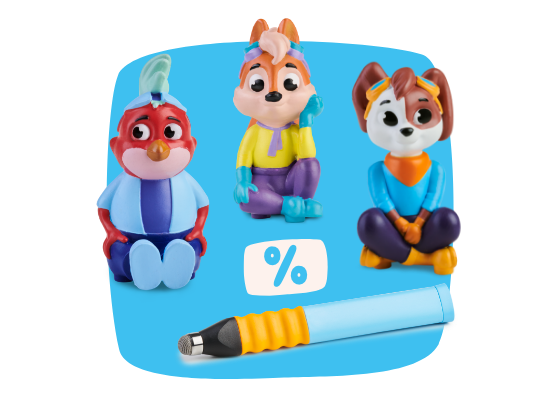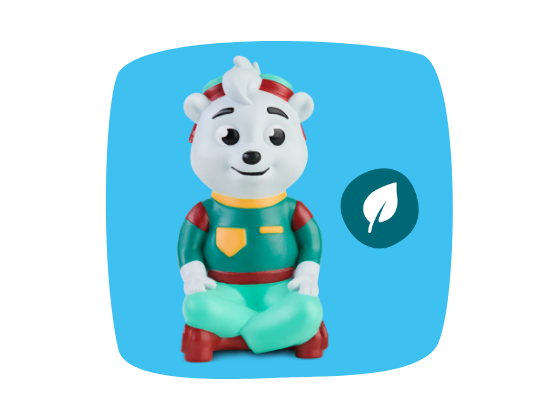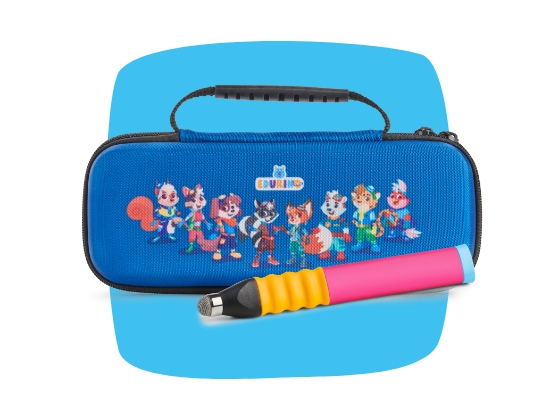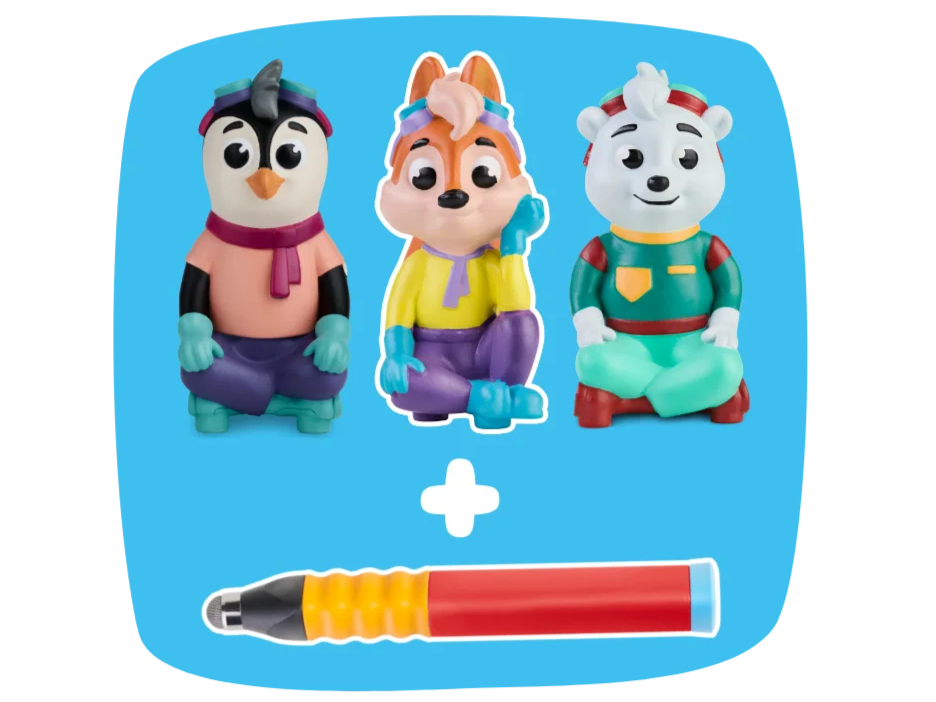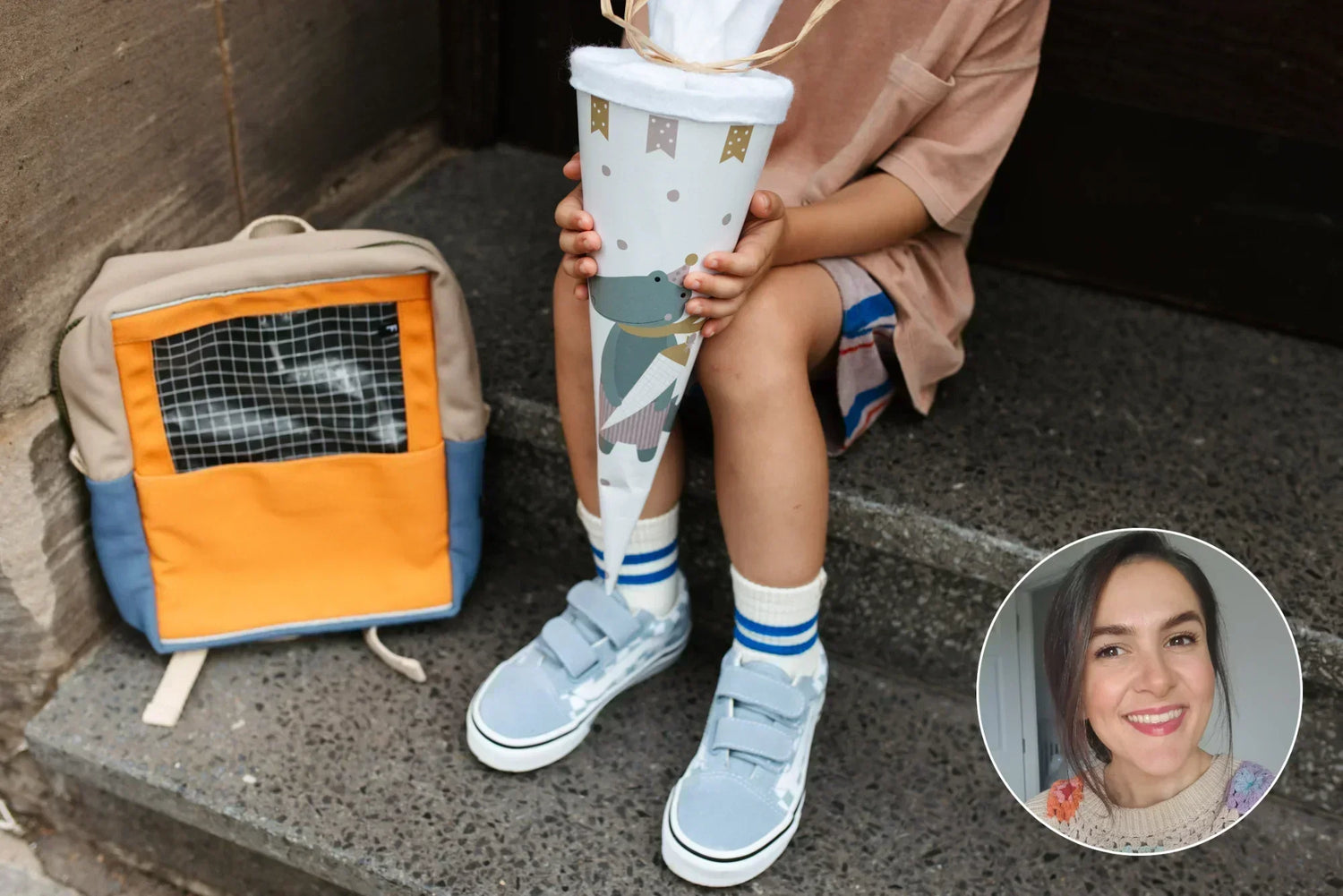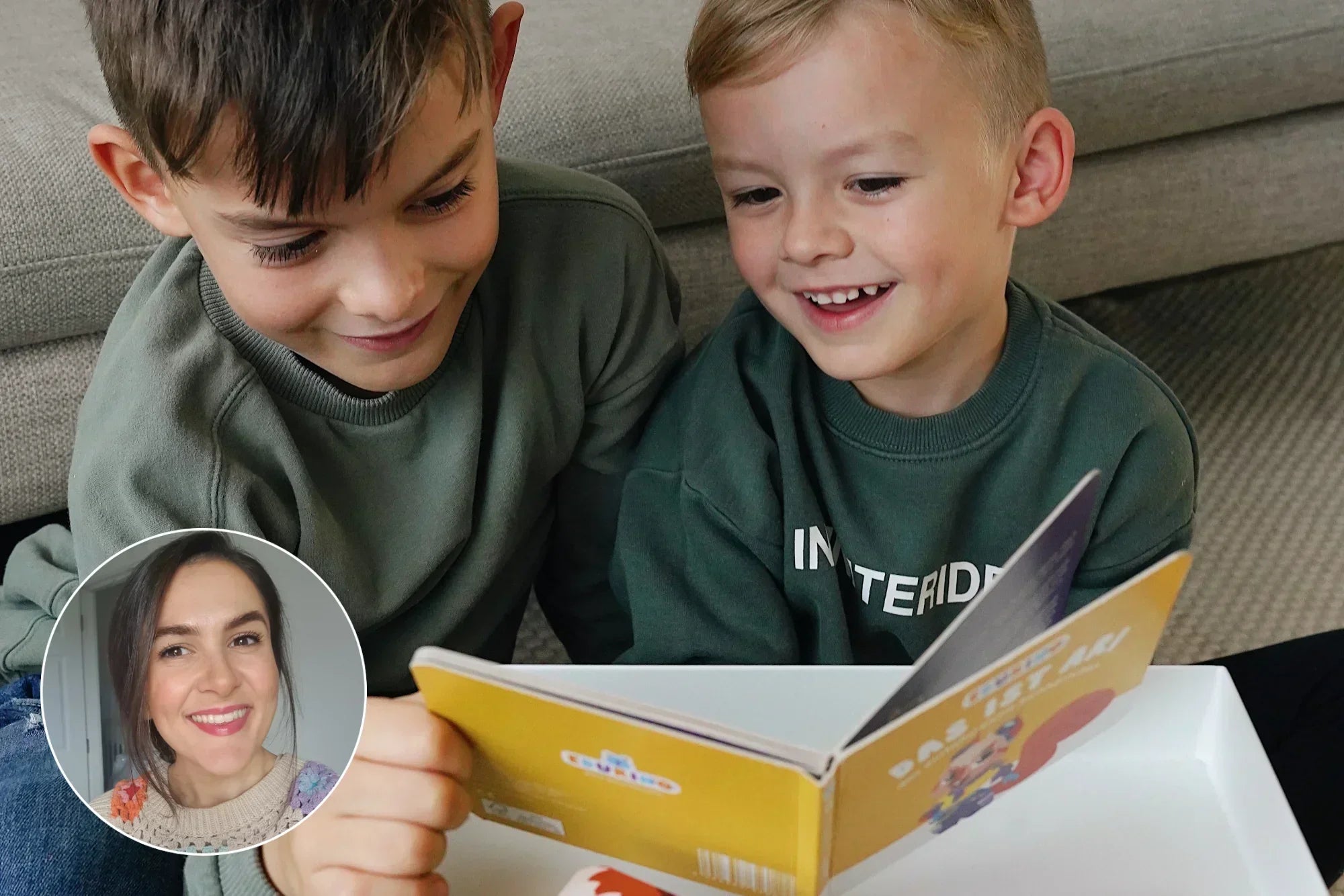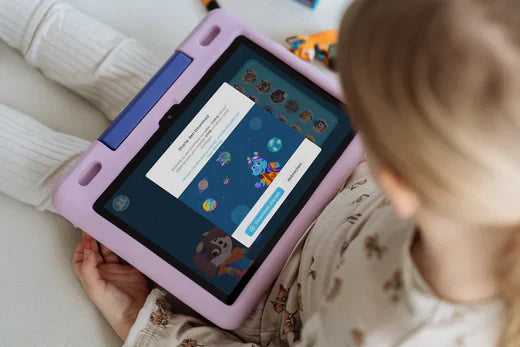Studies show that many children struggle to adjust after the holidays or at the start of the new school year. Stress, nervousness, and anxiety often make the transition harder than it needs to be. If your child is having trouble adjusting, you're not alone.
I'm Brigid—a mom and early childhood educator—and here I share my best tips for supporting your child during this phase.
Why it is important to face fear
The impulse to protect children from unpleasant feelings is completely normal. But allowing them to avoid every situation that triggers anxiety can do more harm than good in the long run.
When you equip your child with tools to help them cope with stressful situations, you promote their resilience and willingness to try new things.
Learning to understand and regulate emotions
With EDURINO's "My Feelings" learning world, children learn to recognize, express, and deal with their own feelings and those of others. Your child will discover that they are not alone with their feelings and that emotions like joy, anger, or fear are completely normal.
Leo helps children better understand their emotions and find words to express them. They learn to recognize signs of anxiety early and use self-calming strategies before feelings become overwhelming. With "pufferfish breathing" or other simple emotion regulation exercises, your child can better cope with stressful situations.
Try it at home💡
The ladder technique:
Is your child anxious about their first swimming lessons? Draw a ladder and write small steps on each rung that your child can take on the way to the lesson.
The ladder technique is a great tool for introducing your child to new challenges in small, manageable steps without overwhelming them.
Step 1 could be observing a swimming lesson or going to the pool with the family. The next step could be getting to know the instructor. After that, your child could pack a favorite swimsuit or buy goggles with their pocket money. This way, they'll gradually gain enough confidence to participate in the lesson.
Why challenges are important
As children grow older, they face more and more challenges: applying for the school team or choir, staying overnight with friends, or resolving conflicts with others.
Such situations involve a certain risk: the fear of failure, of not achieving the desired result, or of embarrassing oneself.
Children who struggle with anxiety often try to avoid such risks – and as a result, miss out on important milestones and formative childhood experiences.
Without these experiences, they miss the opportunity to learn crucial skills: how to calm themselves, resolve conflicts, persevere, or believe in their own ability to overcome challenges. Children who repeatedly avoid such situations—or are "rescued" from them by well-meaning parents—often become more anxious and lose self-confidence. They begin to believe they cannot handle situations on their own and are always dependent on the help of others.
Strengthen friendships and social skills
With Leo's second learning world, "Friendship & Social," your child will learn the importance of empathy, respect, and good communication when interacting with others. Together with Leo, they will discover how to clearly express their own interests, resolve conflicts constructively, and appreciate diversity within a community.
Leo provides your child with helpful tools—like the 5-4-3-2-1 method—to stay calm and find solutions even in difficult moments. These playful skills help your child handle social challenges more confidently and feel comfortable in a group setting.
Try it at home💡
Model emotional resilience: Be open and share your own experiences with your child – especially the moments when you faced a challenge despite fear.
For example: "I was really scared to start my new job, but I knew it was a great opportunity. I was nervous the first day, but I did it anyway—and I'm so glad I did."
There's no "quick fix" to help a child struggling with anxiety. If your child is struggling with math, it takes time, practice, and patience to solve difficult problems. It's the same with anxiety—step by step, they'll learn to cope with new challenges and grow from them.
